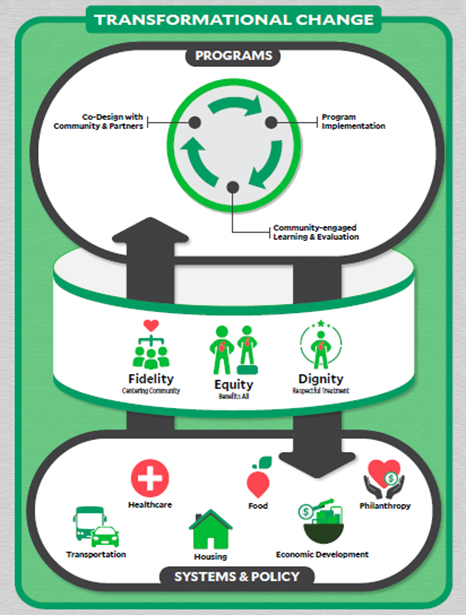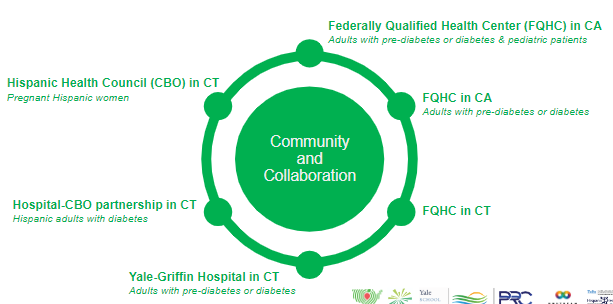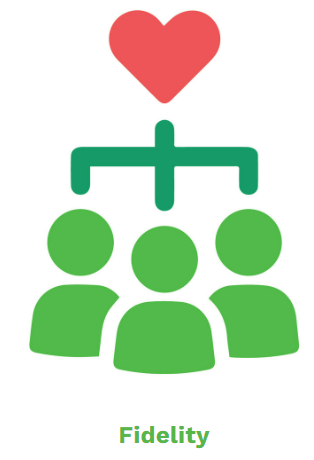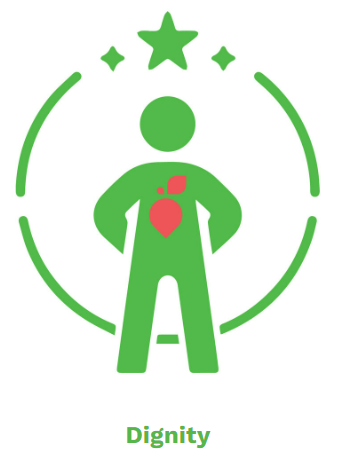
Food As Medicine Hub: Advancing Health Equity through Community-Centered Research and Programs
The Yale-Griffin Prevention Research Center (Y-G PRC) Food as Medicine Hub collaborates with multiple Connecticut and national partners to:
- Co-design, implement, and evaluate Food As Medicine (FAM) programs
- Develop and disseminate tools for researchers, health providers and administrators, and community-based health practitioners investigating and implementing PRx programs
- Disseminate scientific findings to inform practice and policy
- Convene interest holders to share learnings and maximize collective impact
Our efforts aim to improve access to healthy foods through the incorporation of community co-design and engagement, which is crucial for ensuring programs are both effective and respectful of the communities they serve.
Community co-design involves working closely with community members to develop and refine the program to better meet their needs and preferences. This approach can lead to more successful outcomes because it ensures that the program is tailored to the specific context, leveraging the assets and addressing challenges faced by the community.
Evaluation components that focus on equity and respect are also important. These assessments help determine whether the programs are effectively reaching and benefiting diverse populations, and whether they are being implemented in a way that is fair and respectful of all participants.
Please be in touch with our team with any questions about our programs! We are always available to discuss community engagement, program design and evaluation methods. We look forward to partnering.
Communities are at our core.
Within and across our studies, we aim to inform policy and practice with insights from across different populations of focus, and different community contexts and cultures. We are interested in sharing both equitable implementation strategies and impacts. Recently completing two studies in California, we are currently engaged in PRx programming in the Lower Naugatuck Valley, Hartford, and New Haven, CT.
Note: we recently completed two studies in Sacramento, CA. Stay tuned for upcoming manuscripts.
Health equity is essential.
We are guided by the Fidelity, Equity, and Dignity (FED) Action Framework. We co-designed this FAM framework in partnership with Rollins School of Public Health’s Elizabeth Rhodes, PhD, MS, Wholesome Wave, and DAISA Enterprise.
The FED Community Workbook and related materials are available to download here.
“FED” is an approach to the Food as Medicine (FaM) field, anchored in the core values of Fidelity, Equity, and Dignity. Founded by Benjamin Perkins, in partnership with Yale-Griffin Prevention Research Center (PRC), DAISA Enterprises, and Wholesome Wave.”

Collective learnings are critical.
We host a collaborative weekly meeting to engage local PRx programs to share resources and learnings and to support fidelity, equity and dignity in every stage of the program, from co-design to dissemination of findings.

Evaluation drives evidence.
We design implementation and evaluation tools for co-design, quality improvement, and evaluation engaged with communities.
Implementation and Evaluation Tools in Development



Fidelity: We believe community voice and choice should direct programming, and if done well, can lead to increased engagement and better outcomes. This means centering the culture, social values, and connections within the community and co-designing the program components with local community residents and participants. We are designing a PRx Community Co-Design Manual to share tools and tips for community co-design, with the hope that all PRx programs start with co-design.
Equity: We believe all persons should have what they need to participate and succeed, and to know this we need ask about (or assess) equity at each stage of programming. To support this, we are creating an Equity Manual: Assessing and Addressing Equity based on our field work and assessments in recruitment, engagement, redemption, retention, and outcomes.
Dignity: We believe all persons deserve to be treated with respect, valuing their dignity. We believe that HOW programs are run is important and an integral aspect to any policy supporting PRx programming. We must ensure that programs are implemented in a way that respects participants. Assessing participants’ experiences of respect related to different aspects of programming provides information for implementers to improve program practices. We also have seen associations with experiences of respect and outcomes. Speaking with participants of programs and hearing about what respect in programming means to them has informed our work. To support assessment across PRx programming, we are developing, testing, and validating a scale to assess respectful PRx programming. Reach out to us if you would like to support this validation effort.
See our published work here.
Rhodes, Elizabeth C et al. “Clients’ experiences and satisfaction with produce prescription programs in California: a qualitative evaluation to inform person-centered and respectful program models.” Frontiers in public health vol. 12 1295291. 20 Mar. 2024, doi:10.3389/fpubh.2024.1295291
Rhodes, Elizabeth C et al. “Client experience of food assistance programs among adults in the United States: a qualitative evidence synthesis protocol.” Frontiers in public health vol. 11 1193451. 31 Aug. 2023, doi:10.3389/fpubh.2023.1193451
Current PRx Projects
Provider-based PRx for People with Pre-Diabetes and Diabetes (Lower Naugatuck Valley, CT)
- We work with Griffin Hospital and Griffin Faculty Physicians to lead a randomized controlled trial with delayed intervention group, titled “A Prescription for Health Equity: A Healthcare Provider-Based Produce Prescription Program for People with Pre-diabetes and Type 2 Diabetes”. The study aims to improve participants’ diet quality, food security, cardio-metabolic risk factors, and to reduce healthcare costs, specifically related to medication use and hospital visits.
- This study is funded by the Gus Schumacher Nutrition Incentive Program.
PRx for Pregnant Latina Mothers (Hartford, CT)
- We partner with the Hispanic Health Council and Wholesome Wave on the FOOD4MOMS PRx on a study to comprehensively assess the feasibility and measure the impact of a PRx program tailored specifically for women who are pregnant, Latina and low-income in Hartford, Connecticut.
- This study is funded by the Gus Schumacher Nutrition Incentive Program.
PRx with Community Health Worker Support for People with Diabetes (Hartford, CT)
- We are currently co-designing and implementing a study titled “Impact of a Community Health Worker Strategy on Produce Prescription Program Uptake Among People with Diabetes” in collaboration with Hispanic Health Council, Hartford Hospital, and Wholesome Wave. This project aims to co-design and evaluate a theory-informed, user-centered implementation strategy supported by community health workers (CHWs). We are looking to see how having support from a CHW affects redemption of produce prescription, diet quality, and health outcomes, building on many of our studies at the Y-G PRC, YSPH and other research showing the impact of CHW support on behavioral change and health.
- This study is funded by the American Heart Association (AHA). The AHA has a Food is Medicine initiative and is funding programs throughout the country to pilot different ways of increasing enrollment and engagement in FAM interventions.
REACH PRx at Federally-Qualified Health Center (New Haven, CT)
- The Y-G PRC collaborates with the Community Alliance for Research and Engagement (CARE), Southern Connecticut State University, and Fair Haven Community Health Care (FHCHC) on CARE’s CDC Racial and Ethnic Approaches to Community Health grant for expanding produce prescription programming. FHCHC is building a new facility with a focus on FAM. Our team is working together to co-design with community members an expanded produce prescription program, engage local partners, and support short and long-term funding mechanisms.
- This program is funded by the Centers for Disease Control and Prevention REACH grant.
Contact Us
We would love to connect! Please reach out to our team at Katherine.lamonaca@yale.edu.
